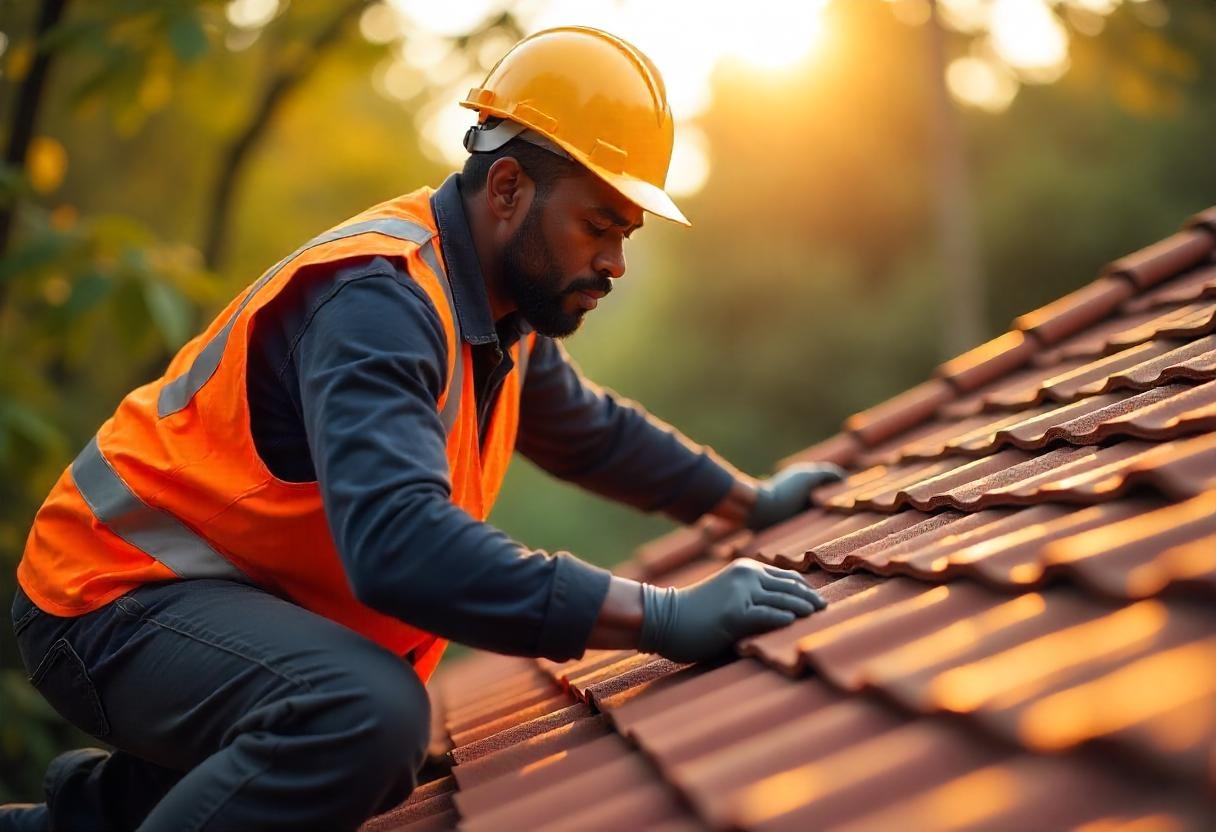When it comes to maintaining your home, the roof is one of its most critical components. Over time, wear and tear can take a toll on your roof, potentially leading to costly repairs if issues go unnoticed. Regular roof inspections can help prevent these issues, but choosing the right inspector is key. The wrong inspector might not only miss critical problems but could also pressure you into unnecessary repairs.
This article will guide you through the process of spotting a reliable roof inspector and highlight red flags to avoid.
What is a Roof Inspector and Why Are Their Services Essential?
A roof inspector is a trained professional who evaluates the overall condition of a roof, looking for signs of damage or wear. Roof inspections are important because they help homeowners identify issues before they become severe and expensive problems. Whether it’s missing shingles, leaks, or structural damage, an early diagnosis can save significant time and money.
Roof inspection services typically include:
- Inspecting shingles for cracks, wear, or damage
- Evaluating gutters, flashing, and ventilation systems
- Checking for water damage or mold in the attic
- Assessing overall roof structure for stability
Regular roof inspection services are essential not only for preventing costly repairs but also for ensuring that your home remains protected against the elements.
Red Flags to Watch Out for When Choosing Roof Inspection Services
Source: Precision Roof Crafters
Choosing the right roof inspector is crucial. The wrong choice could result in a missed issue, unnecessary repairs, or even substandard work. Here are some red flags to be aware of when choosing roof inspection services:
1. Unlicensed or Uninsured Inspectors
One of the biggest red flags is hiring an inspector who is not licensed or insured. A legitimate roof inspector should hold certifications from recognized industry organizations, such as the National Roofing Contractors Association (NRCA). Insurance is also essential to protect both the inspector and the homeowner in case of accidents during the inspection. Without these protections, you might be liable for damages or injuries that occur during the inspection.
2. Lack of Experience or Expertise
Experience matters when it comes to roof inspections. A lack of expertise or relevant experience in inspecting roofs could lead to important issues being overlooked. For example, an inexperienced inspector may not recognize signs of water damage or might not know how to assess more complex issues with roof ventilation. Before hiring, ask about the inspector’s experience and verify their qualifications.
3. No Written Report or Documentation
A trustworthy roof inspector should always provide a detailed, written report after completing the inspection. This report should outline the findings, include photos, and describe any recommended repairs or ongoing maintenance. If an inspector only provides a verbal report, or worse, no documentation at all, it’s a huge red flag. A professional report ensures that you have a record of the inspection and its results for future reference, especially if you decide to sell the home or make an insurance claim.
4. High-Pressure Sales Tactics
Be wary of roof inspectors who immediately recommend major repairs or replacements after a quick look at the roof. If an inspector pressures you into committing to expensive repairs without giving you a full, thorough inspection, it may be a sign that they are more interested in securing business than in providing an honest assessment. A reliable roof inspector will take the time to explain their findings, give you options, and let you make an informed decision.
5. Failure to Inspect the Entire Roof
A full roof inspection should be comprehensive, covering all aspects of your roofing system, including the attic, gutters, and ventilation. If an inspector skips areas like the attic or exterior components, or only checks from the ground, this is a significant red flag. An incomplete inspection means they might miss underlying problems, such as leaks or damage hidden in the attic or gutters.
What is the Biggest Red Flag in a Home Inspection?
The biggest red flag in any home inspection, including roof inspections, is when the inspector makes immediate recommendations for major repairs or replacements without first providing a thorough evaluation. A reliable inspector will conduct a full inspection, document all findings, and explain any necessary repairs with context, allowing you time to make an informed decision.
A rushed inspection with hasty recommendations often indicates that the inspector may not be as thorough as they should be, or they might be attempting to upsell services that aren’t actually needed.
How to Verify the Credibility of a Roof Inspector
To ensure you’re hiring a reliable roof inspector, it’s important to verify their credentials. Here are some steps you can take to ensure their credibility:
- Check for Certifications and Memberships: Look for professional affiliations with recognized organizations such as the NRCA (National Roofing Contractors Association) or ICC (International Code Council). Certification demonstrates that the inspector adheres to industry standards and keeps up with the latest practices.
- Review Customer Testimonials and References: A reputable roof inspector should have positive feedback from previous clients. Check online reviews, ask for references, and read through testimonials. A good inspector will have a track record of satisfied customers.
- Ask for Proof of Insurance and Bonding: An insured and bonded inspector ensures that you’re protected from liability in case of accidents or damage during the inspection. Always ask to see proof of these before hiring anyone.
- Ask About Experience and Training: Make sure the inspector has sufficient experience, particularly with the type of roofing you have. If they specialize in residential roofs, ensure they have experience with homes similar to yours.
Conclusion
Hiring a reliable roof inspector is critical for ensuring your roof is in good condition and to avoid costly, unnecessary repairs. When selecting a roof inspector, be mindful of red flags such as lack of insurance, poor documentation, high-pressure sales tactics, and incomplete inspections. Ensure the inspector is licensed, insured, experienced, and willing to provide a comprehensive, written report.


